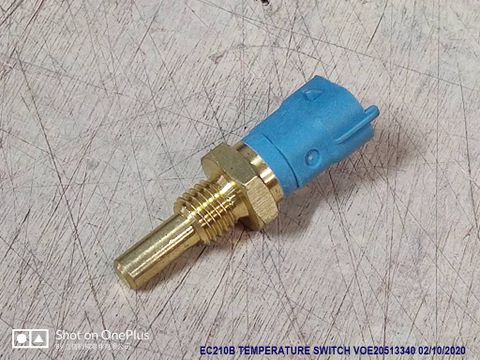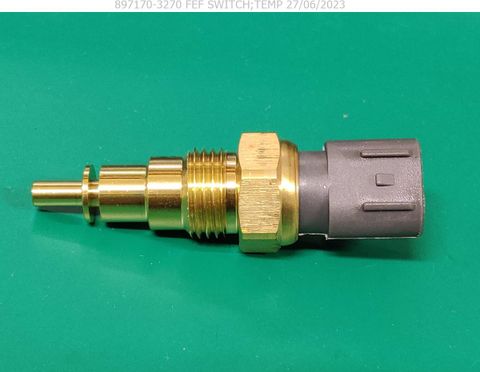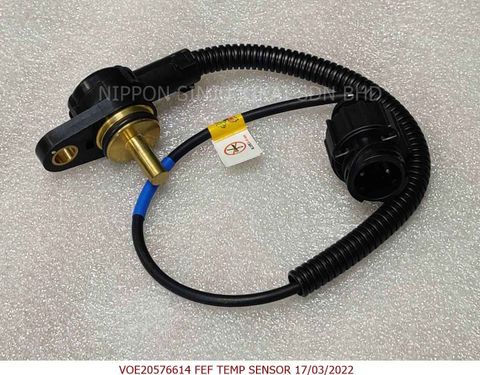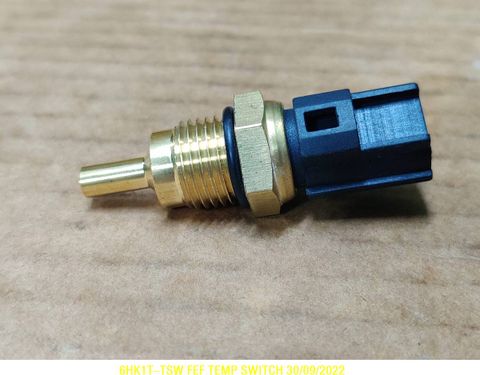Water Temperature
อัพเดตล่าสุด
ราคา:
ขอราคา
Share Product:
รายละเอียด
A non-functional water temperature sensor in an engine can lead to several significant issues, affecting the performance, efficiency, and safety of the vehicle. Here are some common problems associated with a faulty water temperature sensor:
Engine Overheating:
- No Warning: The most critical issue is that the engine may overheat without any warning. The temperature gauge might not show the rising temperature, leading to potential severe engine damage if the driver is unaware of the overheating condition.
- Coolant Loss: Overheating can cause coolant to boil over and be lost from the cooling system, exacerbating the overheating issue.
Poor Fuel Efficiency:
- Incorrect Fuel Mixture: The engine control unit (ECU) relies on accurate temperature readings to adjust the air-fuel mixture. A faulty sensor can lead to an incorrect mixture, often resulting in poor fuel efficiency and increased emissions.
Engine Performance Issues:
- Cold Start Problems: During cold starts, the ECU enriches the fuel mixture based on engine temperature. A faulty sensor can prevent this enrichment, causing difficulty starting the engine and poor performance until the engine warms up.
- Poor Acceleration: Incorrect temperature readings can affect engine timing and fuel delivery, leading to sluggish acceleration and reduced power.
Check Engine Light Activation:
- Error Codes: A non-functional sensor can trigger the check engine light. The ECU may log error codes related to the cooling system or engine temperature, indicating the need for diagnostics and repair.
Inconsistent Temperature Gauge Readings:
- Erratic Gauge Behavior: The temperature gauge on the dashboard may show erratic or incorrect readings, making it hard for the driver to monitor engine temperature accurately.
- No Reading: The gauge might not move at all if the sensor is completely non-functional, providing no indication of engine temperature.
Increased Emissions:
- Emission Control Issues: Incorrect temperature readings can affect the performance of emission control systems, such as the EGR (Exhaust Gas Recirculation) system and the catalytic converter, leading to increased emissions and potential regulatory compliance issues.
Cooling Fan Operation:
- Fan Malfunction: The engine cooling fan relies on the temperature sensor to activate at the correct time. A faulty sensor can prevent the fan from turning on, causing the engine to overheat.
- Continuous Operation: Conversely, the fan may run continuously if the sensor falsely indicates an overheated condition, leading to unnecessary wear on the fan and increased noise.
Thermostat Control Issues:
- Thermostat Operation: The temperature sensor provides data to control the thermostat, which regulates coolant flow. A faulty sensor can cause improper thermostat operation, affecting engine warm-up and cooling.
Summary
A non-functional water temperature sensor can cause engine overheating, poor fuel efficiency, performance issues, check engine light activation, inconsistent temperature gauge readings, increased emissions, cooling fan operation problems, and thermostat control issues. These problems can significantly impact the vehicle's performance, safety, and reliability. If a water temperature sensor malfunction is suspected, it should be diagnosed and replaced promptly by a qualified technician to ensure the proper functioning of the engine and cooling system.
4o
ข้อมูลจำเพาะ
| คำสำคัญ | |
| แบรนด์ | |
| แหล่งที่มา | MY |
แคตตาล็อก Download



